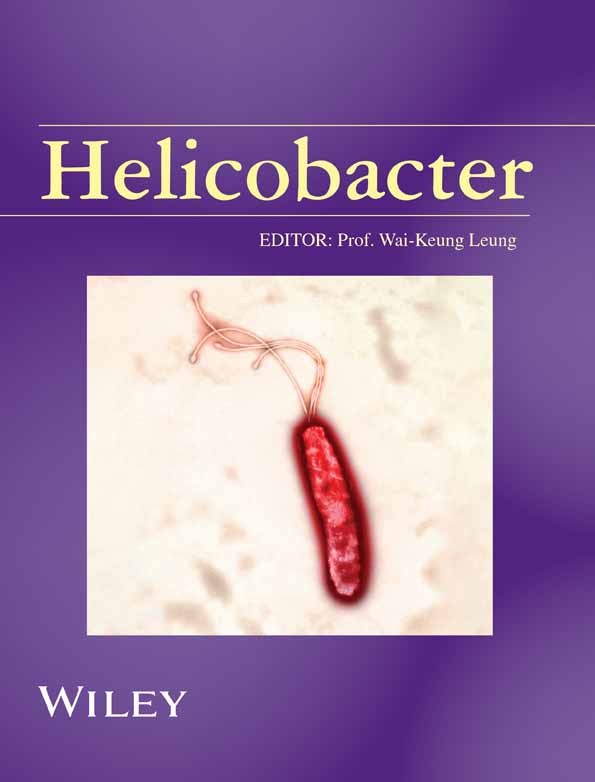The Presence of Immunoglobulins in the Gastric Juice of Patients Infected With Helicobacter pylori is Related to a Reduced Secretion of Acid
Abstract
Background. It has been reported that treatment with proton pump inhibitors (PPI) leads to partial elimination and suppression of Helicobacter pylori. In theory, since acid is known to denature immunoglobulins, this antibacterial activity of PPI may be due to a reduction in the acid output favouring humoral immunity.
Materials and methods. We analysed prospectively fasting gastric juice in 54 consecutive patients attending upper endoscopy for pH and levels of IgG, IgA and IgM. In addition, two antral and two corpus biopsies were obtained and histologically examined for the presence of H. pylori.
Results. 41/54 patients were infected with H. pylori. Immunoglobulines in the gastric juice of these patients were found in 25/41 (IgG), 27/41 (IgA), and 29/41 (IgM) patients. There was a highly significant difference in the gastric pH when H. pylori infected patients with measurable IgG, IgA, or IgM were compared with those in whom no immunoglobulines were found (median pH: 6 vs. 2 in each group; p < .001)
Conclusions. There is a close correlation between a high gastric pH and the presence of IgG, IgA, and IgM antibodies. Hence, it may be speculated that the efficacy of humoral immunity following H. pylori infection depends on a high pH such as resulting from PPI treatment.




